Iran’s Judiciary Says Insulting Religious Sanctities Punishable By Death
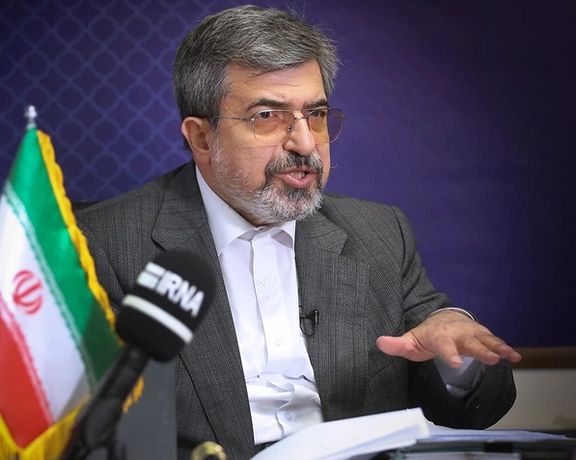
Protesters insulting religious sanctities can be condemned to death, Iran’s hardline Judiciary said Monday, citing Islamic law codified by the clerical regime.

Protesters insulting religious sanctities can be condemned to death, Iran’s hardline Judiciary said Monday, citing Islamic law codified by the clerical regime.
Massoud Setayeshi, the spokesman of the Judiciary told the government news website IRNA that according to Iran’s version of Islamic law, article 513, “Those insulting Islamic sanctities or its saints” can be convicted and receive the death penalty. The principle cited is ‘Sab Al-Nabi’ or insulting the Prophet.
Islamic Republic’s Judiciary, controlled by Supreme Leader Ali Khamenei, has already convicted at least six protesters to death and it is not clear if some of them faced charges related to insulting religious sanctities. Political trials of dissidents are held behind closed doors with no transparency.
Setayeshi defended convictions arguing that existing law requires it, which can add fuel to the protesters anger, who demand a secular form of government and reject the precepts of the clerical regime.
The spokesman also argued that insulting the Islamic Republic’s flag and anthem is also punishable. He claimed that in many Western countries laws exist to punish those who desecrate the national flag or reject the national anthem.
Although in some democratic countries such as France desecrating the flag carries a fine, there are independent courts and due process of law for those charged to receive a fair trial, unlike Iran where dissidents cannot choose their own lawyers and both judges and prosecutors take orders from the Judiciary and intelligence organizations.
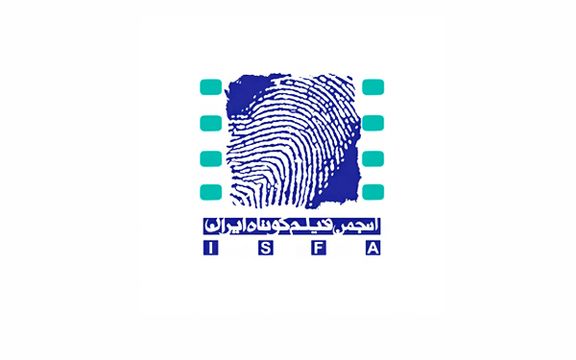
The Iranian Short Film Association has condemned the killing of youngsters and children by government forces saying that from now on it will stand with the people of Iran.
In a statement on Saturday, ISFA slammed the killing of Kian Pirfalak, the 10-year-old boy who was killed by security forces who fired at his family car in the city of Izeh, adding that “From now on, we will live and work in reality and stand where the dear people of Iran stand.”
ISFA also condemned “many redlines” by the Islamic Republic in filmmaking such as “infanticide”, adding that this time children are killed not in the movies but in a very horrifying way on streets.
Since the uprising, at least 47 children have been killed by security forces, with Kian Pirfalak killing as one of the most shocking incidents that aroused strong public anger.
The production of any short or feature film in the Islamic Republic requires a license from the ministry of culture and Islamic guidance, but the Short Film Association has stated that “from now on, retaining rights and expression of opinion does not need any license except the will of the nation.”
More than two months since the beginning of nationwide protests, the government is still heavily suppressing demonstrators. So far, nearly 400 people have been killed including women and children. As the number rapidly rises, the Islamic Republic refuses to accept responsibility and attributes the killings to terrorist and foreign groups.
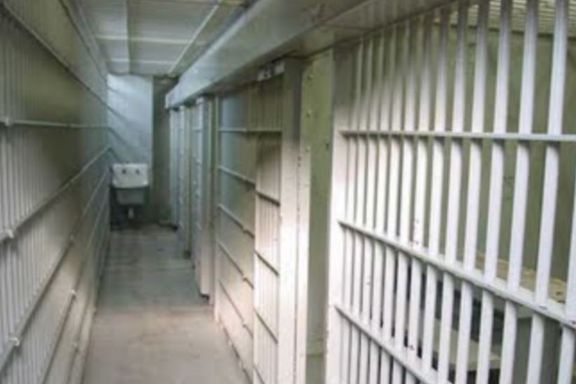
A group of American poets have published a letter demanding the release of writers, poets and intellectuals imprisoned by the Islamic Republic of Iran.
Charles Bernstein, the founder of the language poetry movement in America and one of the most important figures of avant-garde poetry and the winner of the prestigious "Bollingen" award prepared the letter.
Over two dozen poets who signed the letter said, “as American poets who have committed our lives to free expression, we are devastated by the attacks on our fellow poets and writers in Iran.”
“While the horrific news of the attacks of women and girls, and indeed on men and boys, has been publicized, the attacks on these Iranian poets and writers have not been fully reported,” they added.
The letter mentions a long list of poets, writers and translators in Iran saying, “We call out to these poets and writers: we see you, we care, we stand with you, we want to read your future works.”
“Poetry matters — in the U.S. and in Iran. The imprisonment of these Iranian literary artists is an attack on all of us,” reads the letter.
They have also published the names of detained intellectuals in Iran, including Atfeh Chaharmahalian, Amirhossein Barimani, Nasibeh Nami’Far, Kaveh and Yashar Dar’al Shafa, Keyvan Mohtadi.
Anne Waldman, Pierre Joris, Jerome Rothenberg and Charles Bernstein are among the signatories.
During the recent protests in Iran, over 110 writers, journalists and artists have been reportedly arrested, threatened, or harmed by the security forces for political reasons.
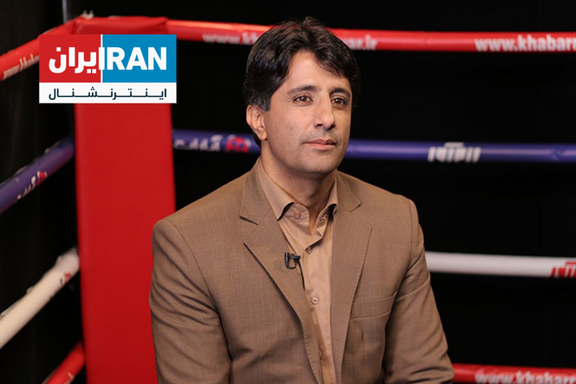
Reports say the head of Boxing Federation of the Islamic Republic, who travelled to Spain with his team, has no intention of returning to Iran.
Hossein Suri is currently in La Nucía accompanying the Iranian team to participate in the IBA Youth Men’s and Women’s World Boxing Championships.
According to the reports received by Iran International, Suri has raised harsh criticisms against the Islamic Republic announcing that from now on he considers himself the “Head of Boxing Federation of Free Iran.”
Hossein Suri, who is from Sistan and Baluchestan province, had repeatedly criticized the killing and suppression of citizens by the government on his Instagram page.
Based on information received from the national team's camp, passports, cell phones and the money of all members of the national team have been confiscated by the accompanying Iranian security guards. Suri has also said that members of the team are also free to defect.
Around 30 Iranian athletes have defected in recent years, seeking asylum in other countries.
In addition to dress code restrictions, another issue forcing Iranian athletes to defect is Tehran’s policy of not allowing them to compete against Israelis.
Many Iranian athletes have also displayed solidarity with 2022 protest movement at international games despite threats of punishment.
Authorities have made serious threats against athletes and other celebrities to stop them from public displays of solidarity with protesters but to no avail.
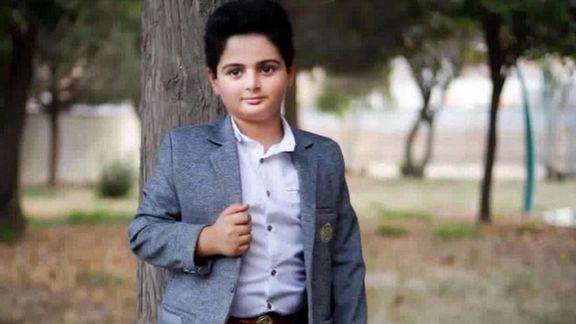
The mother of ten-year-old Kian Pirfalak killed by security forces in Iran was forced to deny she accused the Supreme Leader of responsibility in her son’s death.
Kian’s mother, Zaynab Molaei-Rad made a fiery speech at her son’s burial Friday. There is a video of her reciting a nursery song the words of which she changed to convey a strong message of protest against Supreme Leader Ali Khamenei who she seemed to hold directly responsible for her son’s killing.
“How’s Mister Seyyed Ali [Khamenei] doing? He has a long beard coming down to his chest, a chest full of hatred. His heart is like stone, all he says is nonsense!” she sang in a voice hoarse from crying to a massive crowd who attended the funeral.
The Khuzestan channel of the IRIB aired a video of her Friday night in which she appeared to deny the authenticity of her posts on Instagram and her account of her son’s death.
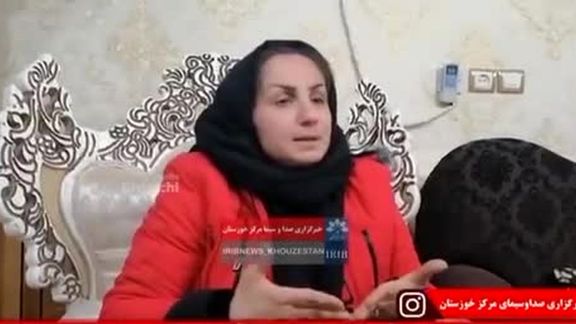
In the video, Kian’s mother who looks deeply distressed is wearing a red coat, very unconventional for a mother who has lost her beloved son. “Please don’t misinterpret my remarks … My child was martyred … I didn’t recite anything … Don’t use my son’s death for your own ends,” she says in the video.
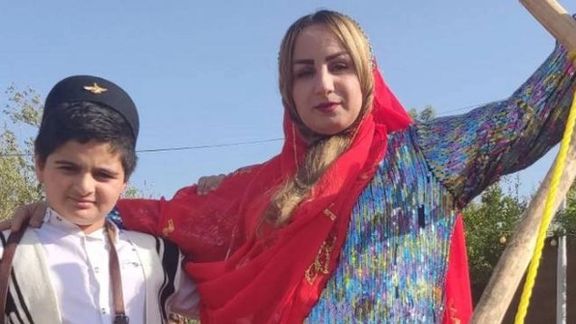
Interviews such as this in which victims or their families repeat authorities’ claims under duress are generally referred to as “coerced confessions” in Iran. Social media users who support the protesters have boycotted sharing the interview made under duress.
The family car carrying Kian, his parents, and three-year-old brother Radin was targeted by plainclothesmen in Izeh, a town of around 100,000 in the east of the oil-rich Khuzestan Province. Kian’s father was also seriously wounded in the shooting and is still in hospital. Authorities claim the family car was attacked by “terrorists”.
A former lawmaker from Izeh, Hojjatollah Darvishpour, has confirmed the account Kian’s mother gave at the funeral and said she has provided all the details about those who shot and moved her son and husband to the Red Crescent and then hospital.
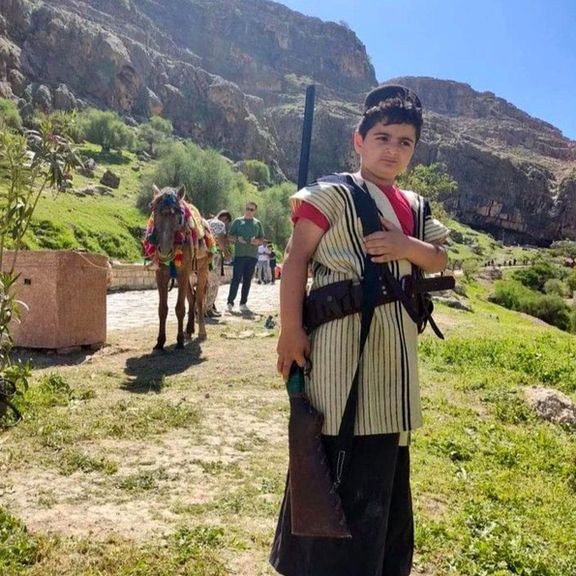
Darvishpour told the state broadcaster (IRIB) Saturday that Basij militia and other security forces were stationed at the Red Crescent at the time of the incident. He also said the fatal shootings in Izeh that claimed seven lives occurred in various places, not in one place by two unidentified motorcyclists as authorities have claimed.
Speaking to Etemad newspaper, Sajjad Pirfalak, Kian’s uncle, has also confirmed Mrs. Molaei-Rad’s account of the shooting and said the family had to hold on to the body at a relative’s house because they did not want it to be “stolen” by authorities like the bodies of other victims.
There are many reports of authorities not handing over bodies of protesters to their families, claiming they were “martyred by terrorists”, and using the bodies in state-sponsored funerals meant for propaganda.
Ahead of World Children’s Day (November 20), the United Nation’s children’s charity, UNICEF, said in a statement that it remains “deeply concerned” by reports of children being killed, injured, and detained in Iran.
UNICEF said despite lack of official data, an estimated 50 children have reportedly lost their lives since late September. “The latest of such horrible losses was 10-year-old Kiyan [Kian] who was shot dead while in the car with his family. This is terrifying and must stop.”
Popular Iranian actress Mahtab Karamati in an Instagram post earlier this week said she was resigning from being UNICEF’s goodwill ambassador, apparently in protest to the organization’s silence about government violence against children in Iran in the past two months.
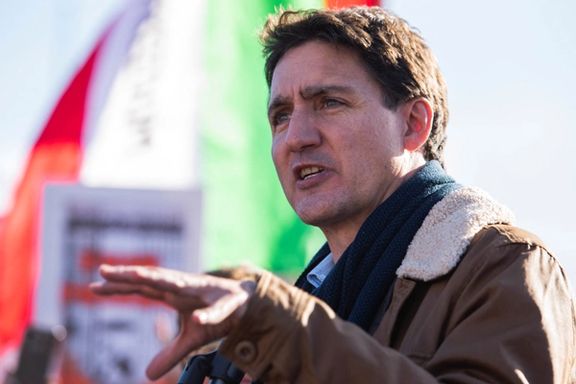
Canada's spy agency has launched an investigation on what it calls multiple “credible” death threats against individuals on its soil by the Islamic Republic.
CBC News said on Friday that the Canadian Security Intelligence Service (CSIS) is aware that some state agents of the Islamic Republic are “monitoring and intimidating” people inside Canada to silence those who speak against the regime.
“CSIS is actively investigating several threats to life emanating from the Islamic Republic of Iran based on credible intelligence,” CSIS spokesperson Eric Balsam said in a media statement.
“Ultimately, these hostile activities and foreign interference undermine the security of Canada and Canadians, as well as our democratic values and sovereignty,” added CSIS.
This is the first time CSIS confirms several ongoing investigations on “lethal threats to Canadians and people located in Canada” emanating from Iran.
Threats by Iran’s intelligence agencies are not just in Canada. UK’s intelligence authorities announced Wednesday they have discovered at least 10 “potential threats” since January to “kidnap or even kill British or UK-based individuals perceived as enemies of the regime.”
MI5 Director General, Ken McCallum noted that except Russia and China, the Islamic Republic is a “mounting concern.”
During his annual threat update in Thames House, London, he underlined that Iran is a state actor which most frequently crosses into terrorism.
“Iran projects threat to the UK directly, through its aggressive intelligence services. At its sharpest this includes ambitions to kidnap or even kill British or UK-based individuals perceived as enemies of the regime,” added McCallum.